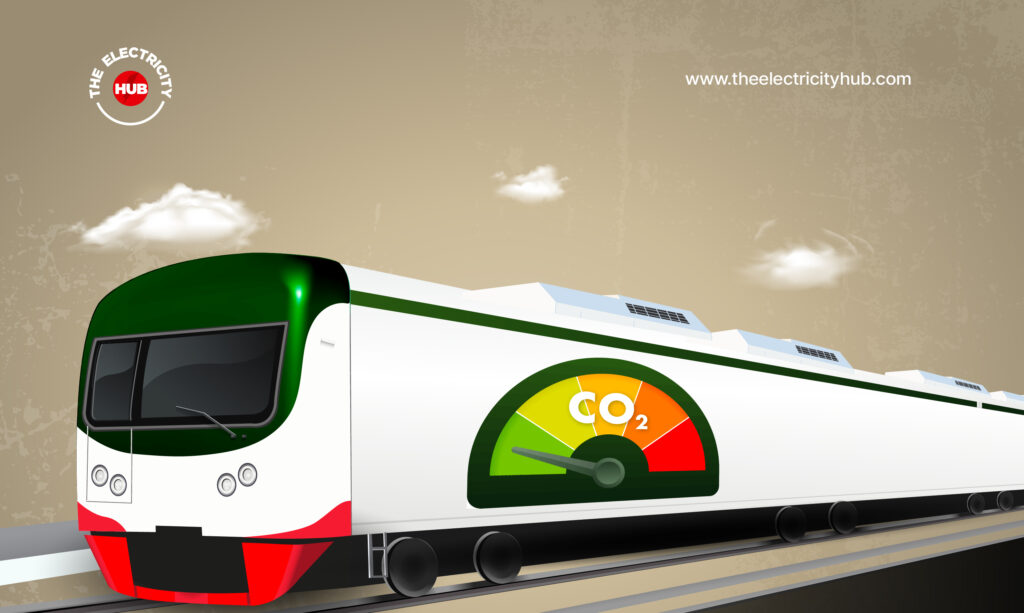
The African Continental Free Trade Area (AFCFTA) agreement symbolizes a significant milestone in accelerating economic integration across Africa. As the continent progresses toward this ambitious goal, it is crucial to prioritize sustainable infrastructure development. Decarbonizing the transportation sector, particularly rail networks, must feature prominently in the AFCFTA plans to mitigate environmental impact and promote long-term economic growth. Explored here are the critical considerations for rail decarbonization within the AFCFTA framework, highlighting the potential benefits and implications for Africa’s sustainable development.
- Environmental Imperative:
Rail transport has a significantly lower carbon footprint compared to road or air transport. The electrification of rail networks using renewable energy sources can further reduce carbon emissions. By decarbonizing rail systems, AFCFTA countries can make substantial progress towards their climate commitments under the Paris Agreement. This contributes to global efforts to combat climate change and mitigate the environmental impact of transportation. Also, rail transport, particularly electric-powered trains, produces zero direct emissions at the point of use. This shift to cleaner energy sources reduces harmful pollutants such as particulate matter, nitrogen oxides, and sulphur dioxide. Improved air quality benefits both urban and rural areas along rail corridors, leading to better public health outcomes and an enhanced quality of life for communities.
- Economic Advantages:
Rail transport is known for its cost efficiency, especially for long-distance and bulk freight movements. Rail systems can transport larger quantities of goods at a lower cost per ton compared to road transport. By investing in rail infrastructure and promoting interconnectivity within the AFCFTA region, the cost of transportation can be significantly reduced. This reduction in transport costs positively impacts trade competitiveness, facilitating greater flows of goods and services within Africa.
Rail projects have the potential to generate a wide range of employment opportunities. These include jobs in the construction and maintenance of rail infrastructure, as well as operations, logistics, and administration. Developing rail networks also stimulates local development, as the sourcing of materials and the engagement of local labour contribute to economic growth in communities along rail corridors. This localized economic development can help reduce regional disparities and improve livelihoods.
By focusing on the environmental imperative and economic advantages of rail decarbonization, AFCFTA countries can foster sustainable economic growth while minimizing their ecological impact. These considerations not only align with global sustainable development goals but also enhance Africa’s positioning as a leader in adopting environmentally friendly transportation systems.
- Infrastructure and Regulatory Considerations:
Electrifying rail networks using renewable energy sources, such as solar or wind, should be emphasized to reduce dependence on fossil fuels. Simultaneously, incorporating advanced technologies like smart grids, signalling systems, and energy recovery systems can optimize energy usage and further reduce emissions. Harmonizing technical standards, gauge systems, and intermodal connections among the AFCFTA partner countries is essential. This will facilitate efficient cross-border and regional rail operations, ensuring seamless connectivity and promoting trade integration.
- Financing and Partnerships:
Attracting Investment: Developing and decarbonizing rail infrastructure requires substantial investments. AFCFTA member nations need to seek investment opportunities to finance rail projects actively. This can be achieved through public-private partnerships, where private entities bring capital and expertise in exchange for revenue-sharing or operating rights. International funding agencies, such as the African Development Bank and regional development banks, can provide financial support for sustainable rail projects. Additionally, engaging with development partners, including bilateral and multilateral organizations, can leverage resources and technical expertise for successful implementation.
Collaboration with international stakeholders is crucial to facilitate technology transfer and capacity building. AFCFTA countries can adopt best practices and learn from the experiences of other regions that have successfully decarbonized their rail systems. International partnerships can enable the training of local workforce, knowledge sharing, and the exchange of technical expertise. Establishing research and development centres focused on rail decarbonization will foster innovation and sustainability in the sector.
Addressing infrastructure and regulatory considerations, coupled with strategic financing and partnerships, will be pivotal in realizing successful rail decarbonization within the AFCFTA framework. By adopting sustainable and standardized practices, African countries can expedite economic growth, enhance regional connectivity, and pave the way for a greener and more resilient transportation sector.
In conclusion, rail decarbonization is a critical component in achieving the AfCFTA’s sustainable objectives. By prioritizing environmentally friendly rail networks, African nations can create economic growth, strengthen regional integration, and contribute to global climate goals. Addressing infrastructure, regulatory challenges, and funding opportunities while seeking partnerships will enable AFCFTA countries to establish sustainable rail systems that promote long-term socio-economic development. By embarking on this ambitious journey, Africa can lead the way in demonstrating the compatibility of economic integration with environmental sustainability.